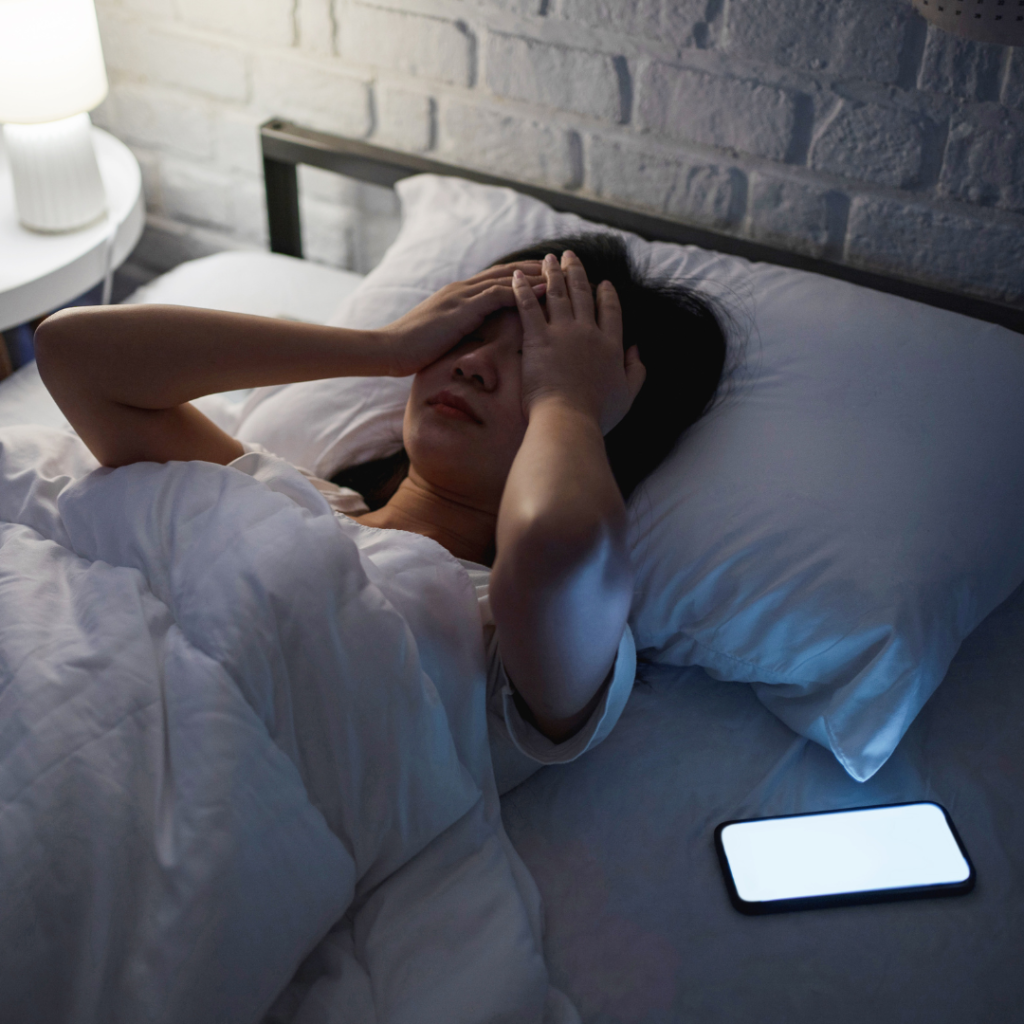We’ve all been there: scrolling through our phones late at night, telling ourselves it’s just for a few more minutes. But before we know it, hours have passed, and we’re still wide awake. If this sounds familiar, you’re not alone. Late-night screen time is increasingly recognized as a major culprit behind insomnia and poor sleep quality.
In this post, we’ll uncover how your smartphone habits could be interfering with your sleep, the science behind the connection, and actionable steps you can take to reclaim restful nights.
The Science Behind Screen Time and Sleep Disruption
1. Blue Light and Its Impact on Melatonin
Smartphones, tablets, and laptops emit blue light, a high-energy visible light that can interfere with your body’s natural sleep-wake cycle. Blue light suppresses melatonin, the hormone responsible for making you feel sleepy. When you expose yourself to blue light late at night, your brain thinks it’s daytime, keeping you alert and delaying the onset of sleep.
2. Hyper-Stimulation and Mental Alertness
Whether it’s social media, streaming, or answering late-night emails, screen time often keeps your mind engaged long after you’ve put your phone down. The constant notifications, bright visuals, and interactive nature of screens can lead to mental hyperactivity, making it difficult for your brain to wind down and transition into sleep mode.
3. Doomscrolling and Anxiety
Late-night scrolling often involves consuming endless streams of news, social media posts, or other content. This habit, known as doomscrolling, can trigger stress and anxiety, further disrupting your ability to relax and fall asleep.
How Poor Sleep Affects Your Health
Sleep isn’t just about feeling rested—it’s essential for your overall health. Chronic sleep deprivation caused by late-night screen use can lead to:
- Weakened immune function
- Increased risk of heart disease and diabetes
- Weight gain due to hormonal imbalances
- Cognitive issues like memory problems and reduced focus
- Mental health challenges, including anxiety and depression
Addressing screen-related sleep issues is about more than just rest—it’s about protecting your long-term health.
Signs Your Smartphone May Be Ruining Your Sleep
Not sure if your screen time is the issue? Here are some common signs:
- You feel wired and alert even after putting your phone down.
- It takes longer than 30 minutes to fall asleep most nights.
- You wake up frequently or feel groggy in the morning despite getting enough hours of sleep.
- You experience eye strain or headaches after prolonged phone use.
Steps to Reclaim Your Sleep
If your smartphone is sabotaging your rest, the good news is that there are effective strategies to mitigate its impact. Here’s how:
1. Set a Digital Curfew
Establish a screen-free hour before bed. Use this time for relaxing, offline activities like reading a book, journaling, or meditating. This helps signal to your brain that it’s time to wind down.
2. Enable Night Mode
Most smartphones have a Night Mode or Blue Light Filter setting that reduces blue light exposure during evening hours. Activate this feature to minimize the impact on your melatonin
levels.
3. Keep Your Phone Out of the Bedroom
Temptation is easier to resist when it’s out of reach. Charge your phone in another room, or use an old-fashioned alarm clock instead of relying on your phone to wake you up.
4. Adopt Healthier Nighttime Habits
Replace screen time with calming activities. Options include:
- Practicing deep breathing or gentle yoga stretches.
- Listening to soothing music or white noise.
- Writing in a gratitude journal to reduce stress and encourage relaxation.
5. Use Apps Wisely
Ironically, your smartphone can also help you build better habits. Use apps designed to promote sleep, such as guided meditation apps or sleep trackers, to support your efforts to improve your bedtime routine.
How to Transition to Better Sleep Habits
Breaking the habit of late-night scrolling can feel challenging, especially if your smartphone is a big part of your routine. Start small by implementing one change at a time—such as setting a digital curfew or enabling Night Mode—and build from there. Consistency is key, and even small adjustments can lead to noticeable improvements in your sleep quality.
Final Thoughts: Prioritize Rest Over Screens
While smartphones have become indispensable in modern life, they don’t belong in your bedtime routine. By making simple, intentional changes to your evening habits, you can reduce screen-related sleep disruption and enjoy deeper, more restorative rest.
Ready to reclaim your nights?
Start with one screen-free hour tonight and experience the difference it makes in how you feel tomorrow.
Suggested Products for Better Sleep:
- Blue Light Blocking Glasses: Reduce exposure to harmful blue light during evening screen use.
- Digital Detox Timer: A device that helps you set screen-free time periods.
- White Noise Machine: Perfect for creating a calming environment conducive to sleep
Disclaimer: This blog post is for informational purposes only and should not replace professional advice. If you struggle with chronic insomnia or other sleep disorders, consult a healthcare professional.

